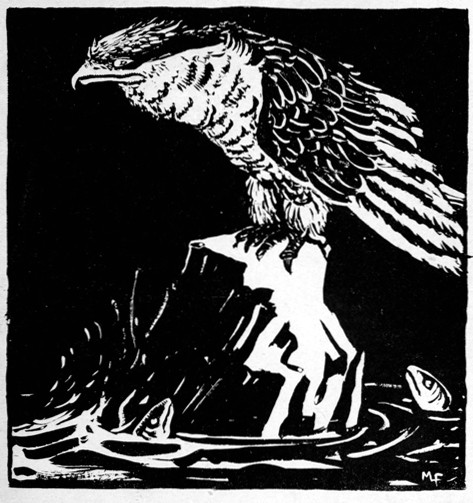
When I saw the title of this Native American tale from Canada, “The Girl Who Always Cried,” I picture a girl always sorrowful, who couldn’t stop her tears. I was wrong. The girl is just self-centered and always crying and complaining because she can’t have every single thing she wants. She was adopted, the only child of a couple.
Nearby, on the bank of a stream, lived the Owl-Man. He was a strange man who lived in the forest and was always silent when around others. He ate toads, frogs and flies. Because he was so odd, rumors were spread that he was cruel evil. Parents, including the girl’s, would threaten their children that if they didn’t behave Owl-man would take them away.
The girl’s parents were so tired of her whining and complaining that the man of the house wished aloud that the Owl-man would come and take her away. But this old man was a magician and the Owl-man did come, put the girl in his basket and carried her off to his home under the ground, happy to have a wife.
The girl, of course, was not happy. She could never be happy, so she continued her crying and yelling, but the Owl-man ignore her, told her she was a “wild, evil thing” and promised to tame her. The girl, though, is smart, tricks the Owl-man, and runs away back to her home. Owl-man goes out to search for her, asking at home after home if his wife is there. Finally he gets to the girl’s parents’ home, but the wife tells him he’s not there. He flies into a rage and starts tearing holes in the roof and walls. The husband could have controlled the Owl-man, but he was out. Finally, the woman brings the girl out and the Owl-man was happy again.
Just at that moment, however, the husband comes home. Now remember, he’s a magician. He’s angry because the Owl-man had been destroying his home. He curses the Owl-man. “You have broken my house. Henceforth you will be not a man but an Owl, and you will dwell alone in the forest with few friends, and you will live always on frogs and toads and field-mice, and people will hear you at night crying for your wife all over the land, but you shall never find her.” And with his magic turns him into an owl. The daughter doesn’t get off scot-free either. The old man says to her, “You have done me much harm too, and you have brought all this trouble upon me. Henceforth you will be not a girl but a Fish-Hawk, and you will always cry and fret and scream as you have done before, and you will never be satisfied.” So the old man gets his revenge on both of them.
And the cries of Owl and Fish-Hawk are still heard in many places, one calling for his wife, the other screaming unsatisfied for something she cannot get.
Such a sad ending, I think. Both birds sad and alone. The girl kind of got what she deserved, but the poor Owl-man, was just an odd individual. The magician wished for him to take his unruly daughter, so he did. He just wanted her back. Perhaps destroying the house was not the best way to go about it, but I don’t think he knew a better way. As I was reading, I though that the girl was going to somehow see the folly in her ways, grow to be a better person, rather like the title character of The Goat-Faced Girl, but I was obviously wrong. No redemption or happy ending here.
You can read the whole story at World of Tales. It’s from Canadian Fairy Tales by Cyrus MacMillan, first published in 1922. You can find the whole book for free several places on-line, including Project Gutenberg.
Thursday’s Tales is a weekly event here at Carol’s Notebook. Fairy tales, folktales, tall tales, even re-tellings, I love them all.

A complex tale!
Very cool story 🙂
Why do always owls get a sad ending, same with the Blodeuedd story
I’m with you in that I was also expecting a sorrowful child – huh, just goes to show.
What a great story! Thanks for sharing the book with us.